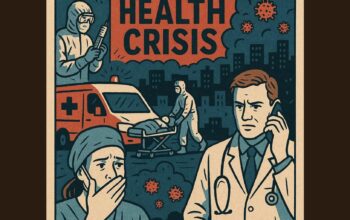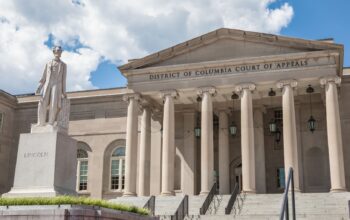The Senate is set to vote Monday on the “One Big, Beautiful Bill,” or as the National Urban League has coined it, the “Big Ugly Bill” — a sweeping budget-and-tax package championed by President Donald Trump and Senate Republicans.
Critics label it not just a fiscal overhaul but part of the overall Project 2025 blueprint for centralized executive authority, civil rights rollback, and Christian nationalist governance.
“Senate Republicans tried to write Donald Trump’s contempt for the courts into law — gutting judicial enforcement, defying the Constitution, and bulldozing the very rule of law that forms our democracy,” Senate Minority Leader Chuck Schumer said in a statement, according to the National Urban League. “It was nothing short of an assault on the system of checks and balances that has anchored this nation since its founding, and a brazen attempt [to] crown Trump king.”
At its core, the bill preserves Trump-era tax cuts for the wealthy while slashing vital aid programs. According to the Congressional Budget Office, the plan would eliminate $793 billion in Medicaid funding — with 10.9 million fewer Americans insured by 2034 — and reduce SNAP spending by over $1 trillion, combined with ACA benefit cuts. Black Americans — disproportionately reliant on these programs — stand to bear the heaviest burden.
“The Senate must now decide whether to abide by the oath each Senator has sworn and defend the American people from a would-be dictatorship,” National Urban League President Marc Morial said in a June 29 statement.
Top 5 Ways This Bill Hurts Black America Today:
- $793 B Medicaid Cuts & Work Requirements
- The bill slashes Medicaid by $793 billion over 10 years, with $344 billion tied to restrictive work requirements that would leave 10.9 million people uninsured including many Black adults.
- SNAP Cuts Costing States Billions
- With over $1 trillion cut overall, SNAP losses include $295 billion directly trimmed and up to $128 billion shifted to state budgets. Since Black households rely on SNAP at nearly double the rate of white households, this threatens deepened hunger in Black communities.
- Student Loan Forgiveness Repeal Worsens Racial Debt Gap
- Black borrowers carry an average of $52,726 in student debt — $25,000 more than white peers. Stripping relief cements this disparity and stalls wealth accumulation.
- Child Tax Credit Excluded for Immigrant Parents
- Denying the $2,000 annual credit to parents lacking Social Security numbers removes up to $12,000 over six years for three-child families — targeting Black immigrant households and pushing them deeper into poverty.
- Endowment Taxes Threaten HBCU Resources
- New tiered taxes on university endowment income could cost Howard and similar HBCUs millions in lost funds, reducing scholarships and support for Black students.
These impacts are not theoretical — they amount to real dollar losses and real human costs: higher medical debt, increased hunger, lifelong financial setbacks, and weakened institutional support.
Civil rights advocates called the bill a targeted economic assault on Black America.“Only billionaires and massive corporations would have the means to seek justice,” Morial wrote, particularly referencing a provision in the bill that would require anyone suing the federal government for a violation of their rights to post expensive bonds to cover potential costs before a court issues an order to stop that violation. “The right to petition the government for a redress of grievances, enshrined in the First Amendment, would be denied to ordinary Americans.”
Source: Published without changes from Washington Informer Newspaper



